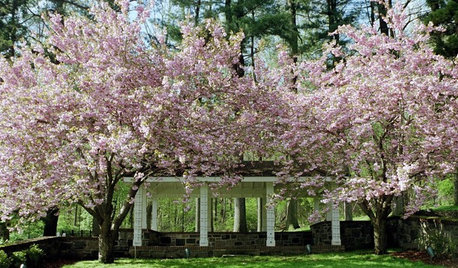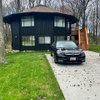"Has it ever occured to anyone that there may exist things in the world that have a purpose beyond human convience,and a beauty beyond mere decoration? Cutting down everything is sight when building is just the standard, suburban "slash and burn",but it's certainly depressing when people boast of doing it."
"I think the idea of the garden as a brute force display of man's dominion over nature is an anacronism,that,historical,has had disasterous results. The fact that the landscape"experts" have been slow to relise this might be a hint that many are just self-interested shysters selling dubious services to gullible clients ,and are indifferent to the greater damage they may be causing.I'd hire a naturalist before I'd hire a landscaper."
"I suggest starting an entirely new thread. I am sure much discussion will follow and your ideas can be given the focus they deserve."
I came in a little late on the thread in which the above quotes appeared, and thought to take IronBelly's suggestion to start a new thread. Hopefully, this will create some more fruitful discussion in a newer context.
As you may or may not know, I'm currently studying Landscape Architecture to one day become an LA, and thus in my courses, these issues of human interests versus natural/ecological interests come up pretty much daily. (This is also the reason why we're enrolled in a philosophy class, "Philosophy and the Environment"). Just today in Construction Materials and Techinques, we watched two short videos created by Cornell University. One was about the Urban Forest, and another about Soil Structure.
It seems odd placing the two terms "Urban" and "Forest" together. Generally, one conjures up the converse of the other. Urban: concrete, cars, skyscrapers, "dead" spaces, noise/air/light pollution, pavement pavement pavement everywhere. Forest: untouched, trees and plants, wildlife, calm, serenity. It seems inevitable that only one can be a dominant force in a given space. Given also that populations continue to increase, the urban sprawl will continue to spread across the landscape, inevitably coming into contact with forests, meadows, wetlands.
Now, when LAs and other experts are busy with other "activities," they're often called upon to plan new developments. It may not be within their formal job description, but they sometimes should/need to/do don the role of environmental mediator: trying to make ALL sides happy and to finish the job with some sanity left over. This is where the question of ethics come in; should I stay or should I go? Walk away from the job, or hang on and always, ever so patiently, trying to get the developer/city/government/client to see the merits in environmental stewardship?
The fusion between a naturalized landscape and an urbanized one is bound to bring up case-specific issues. In this case, professionals who are suited for the context would be more appropriate. I am not try to degrade foresters - their skills and knowledge are valuable - but we do not live in trees. We may be surrounded by forests, but it is where the forest meets the house where the decisions, and thus the design, is most important.
I'm not sure if this post led anywhere. It's most probably riddled with poor assumptions and misguided conceptions, but I think it would be beneficial (not just for myself) for the entire forum for these to be picked out, discussed, and debated. It's not an issue which will go away, so hopefully this is a start, at the very least.
-Audric

















bonsai_audgeOriginal Author
The_Mohave__Kid
Related Discussions
The Leichhardtii Paradox
Q
induction paradox?
Q
Quotes 8 - 10 - 16
Q
Quotes 8 - 20 - 16
Q
The_Mohave__Kid
laag
spunky_MA_z6
marcinde
shadygrove
littledog
miss_rumphius_rules
littledog
nandina
ironbelly1
Embothrium
The_Mohave__Kid
littledog
inkognito
The_Mohave__Kid
Embothrium
The_Mohave__Kid
littledog
ironbelly1
nwnatural
Embothrium
littledog
littledog
miss_rumphius_rules
laag
The_Mohave__Kid
collaway
laag
haringfan
ekoteriust
laag
nwnatural
laag
littledog
mad_gallica (z5 Eastern NY)
bonsai_audgeOriginal Author
littledog
bonsai_audgeOriginal Author
woodyoak zone 5 southern Ont., Canada
laag
inkognito
tibs
nwnatural
woodyoak zone 5 southern Ont., Canada
ironbelly1
littledog
laag
maro